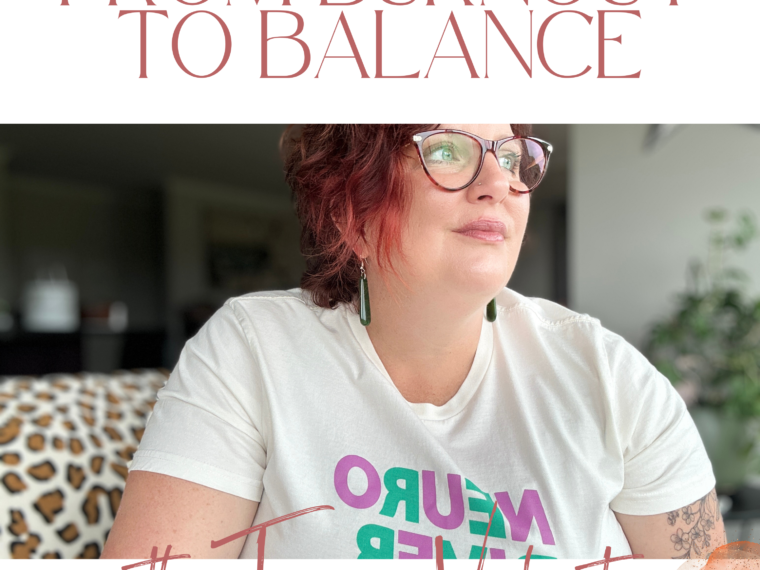Parenting is an apprenticeship with grief. This post explores how acceptance, self-compassion, and belonging help us break cycles and heal alongside our children. Read more…

Compassionate guidance for parents of neurodivergent children and teens navigating autistic burnout

Parenting is an apprenticeship with grief. This post explores how acceptance, self-compassion, and belonging help us break cycles and heal alongside our children. Read more…

Breaking Generational Cycles of Shame, Grief, and Emotional Illiteracy in Parenting When I was a young parent, I came across a Facebook meme that said: I remember reading it late at night, peering down at my sleeping baby and toddler. I made a quiet promise to them right then: This will be our family’s story. […] Read more…

And how they became the foundation of everything I now teach. There was a moment, and maybe you’ve had one like this, where everything in me said, “I can’t keep doing this.“ My child was in deep burnout.I was in burnout.And nothing I tried was working anymore. The strategies that were meant to help only […] Read more…

This quote found me during a season of parenting when everything felt like it was falling apart. When the child I once knew seemed to vanish.When meltdowns, shutdowns, emergency room visits, hospital stays, and struggling to keep a teen alive who didn’t want to be here, and complete withdrawal became the norm. This was a […] Read more…

In this episode, Tanya discusses the dark thoughts and complex emotions parents face when navigating their child’s burnout. She addresses feelings of guilt, grief, jealousy, fear, and isolation, emphasising the importance of self-compassion and acceptance. Tanya provides insights into the healing journey for both parents and children, encouraging listeners to embrace their struggles and seek […] Read more…

In this conversation, Tanya discusses the Burnout Recovery Roadmap, emphasizing the importance of awareness in understanding the stages of burnout recovery for children, particularly those who are neurodivergent. She outlines the five distinct stages of burnout recovery, from daily burnout to the new normal, and highlights the emotional and practical challenges parents face during this […] Read more…

This episode delves into the complexities of parenting autistic children, particularly focusing on the challenges of burnout, the emotional toll on parents, and the need for greater awareness and understanding within the community. Tanya shares her personal experiences, highlighting the importance of recognizing burnout, navigating feelings of guilt and shame, and advocating for systemic […] Read more…

A tender look at grieving parenting expectations, change and the radical acceptance of who your neurodivergent child is becoming after burnout. There’s a question I hear often, though it’s rarely spoken aloud: “Will my child ever go back to how they were before burnout?” It’s such a tender, raw question. And underneath it is often […] Read more…

If you’re parenting a neurodivergent child, chances are you’ve been told at some point that “consistency is key.” Therapists, teachers, and even well-meaning friends and family may have advised you that setting firm, consistent expectations will help your child learn, behave, and adapt. But what if I told you that this advice is not only […] Read more…

In this episode, Tanya discusses the often-overlooked issue of parent burnout, emphasizing the importance of self-care and mental health for parents. She introduces the concept of low-demand parenting, which involves reducing both parental and child demands to foster a healthier family dynamic. Tanya also explores the metaphor of juggling responsibilities, categorizing tasks into ‘glass balls’ […] Read more…